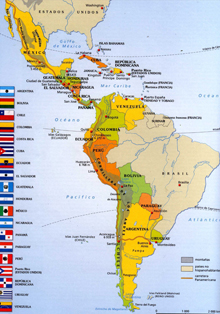Claudia Luna Palencia
Periodista
Since 4 April, Finland’s flag has been flying free in the wind at NATO headquarters in Brussels, the culmination of its application to join the Transatlantic Alliance after breaking its neutrality in the wake of Russia’s invasion of Ukraine. If Putin didn’t want a NATO neighbour, he now has one along a 1,340-kilometre backyard.
Even President Sauli Niinisto himself continued to hold bilateral meetings with Russian President Vladimir Putin, even after the annexation of Crimea in 2014 and despite Western criticism of this stance.
Throughout its history, Finland has also been at the mercy of Russian ambitions and knows all too well what it is like to lose territory – not long ago it was stripped of part of it as a result of the invasion by Soviet troops during the Second World War.
In the post-war period and in the so-called Cold War it maintained a policy of friendship, respect and cooperation first with the USSR and then with Russia that included a neutrality almost demanded by Moscow of a small state on the part of a nuclear giant. And Helsinki largely kept its commitments by staying out of NATO and the Warsaw Pact.
Its rulers have always been cautious and wary of upsetting the Kremlin with statements or positions that might cause irritation. In recent decades, the Finns spoke only of peace and staying out of trouble.
Now they are building a three-metre-high barbed-wire fence with a first extension of 200 kilometres, which could take up to four years to complete. The Helsinki government wants to close the weakest flanks of its border with Russia.
In fact, it was a decision championed by Prime Minister Sanna Marin’s government at a time when it had the majority support of her centre-left bloc.
Marin has been a victim of her own youth and inexperience to such an extent that her party fell to third place in the last elections and is on the verge of losing the government: the Social Democrats have been swept aside by the more conservative bloc and, in second place, by the far right. Nobody doubts that Finland must protect its borders and that it was right to join NATO in the face of the current Russian threat (at least during Putin’s term in office), but Marin has been questioned a lot for her partying. Same case as Boris Johnson, only the former British premier did it in confinement and lied about it repeatedly.
On the subject
With Finland’s entry into NATO, the Nordic country has taken a giant step forward. It has been brave enough to defy its big neighbour, which it no longer respects but fears. Because fear has driven the Finns into the protective umbrella of the Transatlantic Alliance, only then has it been possible to shatter their vaunted stance of neutrality. Its Treaty of Friendship, Cooperation and Mutual Assistance with Russia is now a dead letter.
For years, Helsinki hosted important meetings between US and Russian dignitaries, for example: in 1975, between President Gerald Ford and Leonid Brezhnev; in 1980, between President George H.W. Bush and his Russian counterpart, Mikhail Gorbachev; in 1997, between President William Clinton and Boris Yeltsin.
In fact, Clinton and Yeltsin discussed NATO enlargement at the request of several countries formed after the break-up of the USSR between 1990 and 1992.
It was the same scenario for the meeting between President Donald Trump and Russian leader Vladimir Putin in July 2018. I was there as a correspondent and saw first-hand how the Finnish capital prepared a warm welcome for the two leaders: on buses, in shop windows and in the streets there were messages welcoming them and wishing them to work together “for world peace”. Quiet Helsinki never imagined that almost five years later it would be NATO’s 31st member.
And that preserving peace is now more than just a wish, it is an obligation because peace is an aspiration that must be defended with blood, sweat and tears, especially in troubled times with so many geopolitical and geo-economic ambitions at stake.
Finland knows the risks because today it is Ukraine, but tomorrow it will be the dispute over control of the Arctic, the oil that could be exploited, future maritime routes, the role it could play in military matters. For NATO, its new ally will contribute to better control of the Baltic.
In addition, there will be a unified air defence between Finland, Norway and Sweden; there will be a Nordic command to monitor the airspace they share; and there will even be joint military exercises and between the three of them there will be 237 combat aircraft. In the end, Putin has made it possible; fear has made it possible….
© Atalayar / All rights reserved






